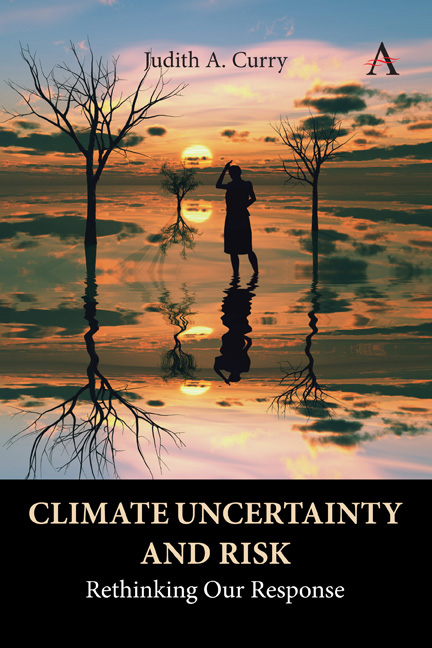Chapter Nine - What's The Worst Case?
Published online by Cambridge University Press: 28 February 2024
Summary
“We must contemplate some extremely unpleasant possibilities, just because we want to avoid them.”
—American nuclear strategist Albert Wohlstetter, writing during the Cold WarFuture scenarios of worst-case outcomes have an important role to play in many decision-making frameworks (Part Three). How to formulate worst-case scenarios, and assess whether they are plausible, is a substantial challenge. This chapter brings into play some complex epistemological issues, focused on formulating and assessing plausible worst-case scenarios.
Global climate models provide a coherent basis for generating scenarios of future climate change, based on emissions scenarios. The worst case is clearly associated with the 8.5 scenarios (RCP8.5, SSP5–8.5). However, Section 7.1.1 provided evidence that RCP8.5 is an implausible scenario. What exactly does implausible mean, and how do we delineate between a scenario that is improbable (<10 percent chance) versus a plausible or an implausible scenario?
Emissions-driven climate model simulations do not allow exploration of all possible future scenarios that are compatible with our background knowledge of the basic way the climate system actually behaves, as described in Chapter Eight. Some of these unexplored possibilities might turn out to be real ones.
Surprises are a class of risk that can be defined as low-likelihood but well-understood events that cannot be predicted with current understanding. Examples include: a series of major volcanic eruptions, a nuclear war, significant twenty-first-century sea level rise due to collapse of the West Antarctic Ice Sheet, and unexpected pandemics.
Black swans are a category of surprise with the following attributes. A black swan is an outlier, as it lies outside the realm of regular expectations and is associated with an extreme impact. In spite of its outlier status, human nature makes us concoct explanations for its occurrence after the fact, making it explainable and predictable. Another class of surprises are known events or processes that were ignored for some reason or judged to be of negligible importance by the scientific community. These are often referred to as Pink Flamingos (also referred to as unknown knowns or known neglecteds).
Four risk factors have been articulated for genuine surprise:
System complexity—risk of surprise is higher when the system under study is nonlinear and complex.
Limited knowledge of the system's past behavior and processes that underlie that behavior.
Past instances of genuine surprise when investigating the system.
- Type
- Chapter
- Information
- Climate Uncertainty and RiskRethinking Our Response, pp. 117 - 138Publisher: Anthem PressPrint publication year: 2023



